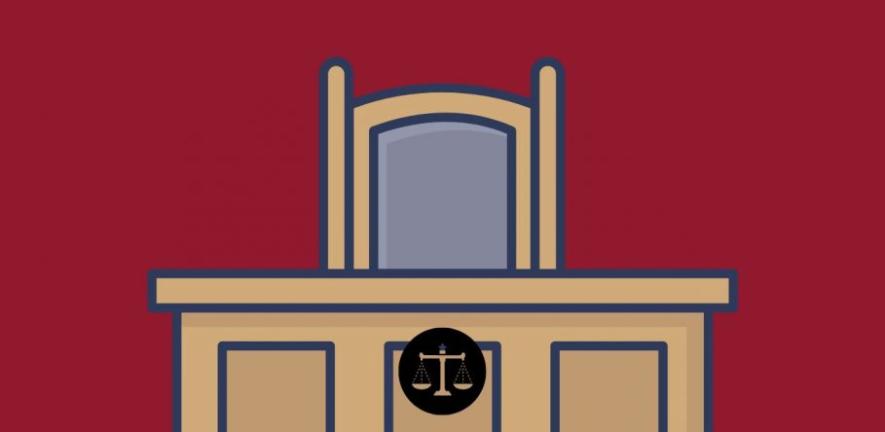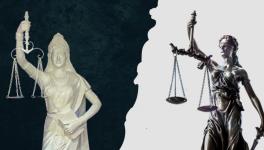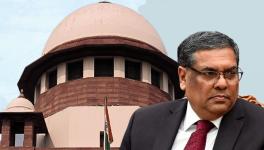Judges & Biases: Is Awareness Enough to Deal With Systemic Predispositions?

A five-judge Supreme Court Bench headed by the Chief Justice of India (CJI) Dr D.Y. Chandrachud recently said, “[E]ach individual has a certain degree of accumulated predispositions based on our experiences of life… At the same time, it is important that every judge should be aware of their own predispositions. The heart and soul of judging is the need to be impartial and fair.”
This was said in the context of Justice V. Srishananda’s observations in the Karnataka High Court on June 6 and August 20. The Bench further said, “These statements were unrelated to the course of proceedings and should have best been eschewed.”
Though the Supreme Court Bench dropped the matter since Justice Srishananda had issued an apology from his courtroom on September 21, it still issued the above cautionary pronouncement perhaps to make a point regarding the “unfair statements” delivered in the courts from time to time.
Are such statements a reflection of a deeper trend in society?
Biases are commonplace in society. Some are obvious but the deeper ones are not. The former can be pointed to and rectified but the latter, which are hard to recognise and resolve, are critical for society. The predispositions of the ruling elite, academics, journalists, etc., are especially important. They impact the judges as well since they are a part of the same society; though one can hope that they will minimise their biases.
The Bench further said, “These statements were unrelated to the course of proceedings and should have best been eschewed.”
Biases can be societal and systemic. The former have a historical context while the latter have their roots in the prevailing dominant ideological framework. The courts functioning within the existing system tend to protect it— this is their predisposition. It is subtle and difficult to overcome.
Societal biases
The Supreme Court Bench identified “life experience” as the source of an individual’s predispositions. Societal biases are widely accepted by people and appear so that individuals think of them as natural or intrinsic. They are not even considered to be a bias that needs to be eliminated since that would amount to transforming oneself, which is difficult if not impossible.
Eliminating predispositions requires one to understand and accept them. This comes about when life experiences change and force one to reflect on them critically and honestly. In turn, reflection requires knowledge and wisdom. Honesty depends on the strength of character which enables one to question oneself and course-correct.
Presently, the majoritarian bias is the most worrying one. The Independence movement had papered over it since unity was required. The imposition of the Emergency in 1975 started a rightward drift in India that reversed this trend. This was reinforced by the global rightward drift as global finance capital became increasingly dominant.
A majoritarian bias has been growing in the institutions of democracy, whether it be political parties, legislatures, bureaucracy, police or judiciary. Large swathes of the media and the intellectual classes have come under its sway. This bias has been reinforced by interested parties exploiting the existing divides and aggravating them under the guise of nationalism and decolonisation.
Gender and caste biases have been entrenched in Indian society for long. Men in a male-dominated society think of women as weak and less capable and that becomes a justification for their domination.
Even powerful women Prime Ministers and Chief Ministers have not managed to eliminate this bias. In caste societies such as those that exist in India, the upper castes believe they are superior and should dominate. Leaders of lower castes who have occupied high positions have hardly dented the caste bias.
Movements against these societal biases are considered to be radical and often characterised by the rulers as anti-national.
During colonial rule, the Indian elite accepted the superiority of Western modernity. So, copying it is deemed to be progress. There is hegemonisation and voluntary acceptance of it. That it marginalises a large number of people is rationalised as the necessary cost of progress.
Due to this predisposition, no corrective action is called for. It is argued that eventually gains will trickle down but the time horizon is undefined. Actually, the elite expect the poor to be grateful for the little gains that come their way since they believe that the poor are to blame for their plight, not the system.
Biases can be societal and systemic. The former have a historical context while the latter have their roots in the prevailing dominant ideological framework.
The problems persist due to the disjuncture between the higher and lower echelons of society. Under the best-case scenario, even if predispositions are recognised and addressed, that does not percolate down to the lower levels. Well-meaning policies face challenges in implementation on the ground due to persisting biases and weak capacity.
This is apparent in the Indian judiciary. Orders and pronouncements at the upper levels go by default at the lower levels. For example, the rule, ‘bail and not jail’, propounded at the top, is hardly implemented at the lower levels— undertrials are incarcerated for years and the process becomes the punishment.
Systemic bias
Within a social setting, systems give rise to further predispositions. In a feudal society, it is ‘natural’ to accept the rule of the blue-blooded. Their diktats are obeyed, right or wrong, exploitative or unjust. One’s position in life is accepted. These predispositions began to change as capitalism slowly displaced feudalism in the West.
But societal transformation is slow. Feudal elements and feudal thinking have persisted even as capitalism matured. In colonised countries such as India, feudalism was used by colonial powers to control the population, thereby enabling feudal predispositions to get entrenched.
These have persisted post-independence. While land ownership has declined in importance, businesses and the ruling elite continue to use feudal forms of exploitation. The marginalised have little choice but to accept it. Hierarchy is accepted and those at the lower levels willingly follow orders from above, even when they are illegal.
The powerful break rules, minor or major, with impunity and expect to get away with it. Power is seen as an entitlement. Elections, the most important means of ensuring accountability of the rulers, are systematically subverted so that the voice of the people in legislatures is weak at best and democracy remains formalistic and not substantive.
Capitalism’s biases
Capitalism comes with its own biases. In itself, it is not democratic since it replaces landlords with capitalists who dominate society due to their financial clout. Democracy has to be nurtured through the robust functioning of institutions and accountability of the rulers, which is not easy.
Under capitalism, policymakers are predisposed to accept the predominance of the interest of capital. Its interest is furthered in the name of investment and development. Progress is defined as urbanisation and industrialisation which privileges them over rural life and agriculture.
This development paradigm becomes the predisposition of the rulers even though it benefits the few over the rest. Marginalising environmental concerns for such development is a predisposition. In India, fighting elections is getting more and more expensive so that the political leaders get indebted to the moneyed— another predisposition.
A majoritarian bias has been growing in the institutions of democracy, whether it be political parties, legislatures, bureaucracy, police or judiciary.
Intellectuals do not have to fight elections and have the leisure to reflect and understand their own biases. But large-scale commercialisation has sucked them into its vortex. This not only becomes their predisposition but also undermines their honesty in accepting their biases.
Media can play a crucial role in bringing about accountability of the rulers. But it is a capitalist enterprise owned by businesses working for a profit. They cannot afford to be neutral between the authorities that control the narrative and those challenging them. They not only depend on government advertising to survive but their owners’ other business interests have to be kept in mind. This is their predisposition.
After the collapse of the Soviet Bloc, the challenge to capitalism has disappeared and capitalism appears to be the natural state of affairs in society. Under capitalism, unemployment and poverty are taken to be ‘natural’ which cannot be eliminated.
The courts accept this even in a civilised society whose Constitution in its Preamble promises “equality” and “fraternity”. These become the predispositions of the courts because of the ‘system’ they operate in.
In the market, the position of each individual depends on their purchasing power— the ‘dollar vote’ rather than ‘one person one vote’. That weakens democracy and leads to atomisation. The onus to solve social problems shifts from the collective to the individual.
The poor, who are marginal to the market, get further marginalised. This is also visible in the promotion of the numerically small organised sector at the expense of the vast unorganised sector by the government, in spite of growing unemployment and inequality.
Various societal predispositions follow. For instance, since trade is taken to be beneficial, globalisation is considered to be desirable, even if it is at the expense of the poor.
Media can play a crucial role in bringing about accountability of the rulers. But it is a capitalist enterprise owned by businesses working for a profit.
‘More is better’ leads to consumerism and environmental problems that are resulting in increasing frequency of extreme weather events. Growing alienation and the political fallout of marginalisation are ignored in favour of economic interests. People are taken to be ‘homoeconomicus’ so that analysis becomes ahistorical and apolitical. Shorn of these crucial determinants of social dynamics, the societal solutions turn out to be non-solutions.
Conclusion
The court correctly identified predisposition as resulting from life experience but did not go further to link it to the social settings and systems. So, overcoming biases requires social transformation which is historically conditioned and slow. Since historical conditioning varies across nations and regions, so do predispositions and there is no one recipe to overcome them.
Some biases are simple and can be rectified but not those that come from social setting and systems. The bias towards capitalist development is leading to growing marginalisation, unemployment, inequality and environmental destruction.
Importantly, majoritarianism and feudal attitudes are getting more entrenched and reversing the trend of alleviating gender, caste and community biases. The result is the subversion of the rule of law and aggravating social conflict. In brief, predispositions are persisting and getting entrenched.
Arun Kumar is a Retired Professor of Economics at the Jawaharlal Nehru University.
Get the latest reports & analysis with people's perspective on Protests, movements & deep analytical videos, discussions of the current affairs in your Telegram app. Subscribe to NewsClick's Telegram channel & get Real-Time updates on stories, as they get published on our website.
























